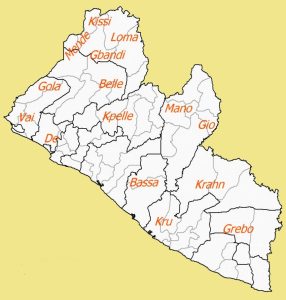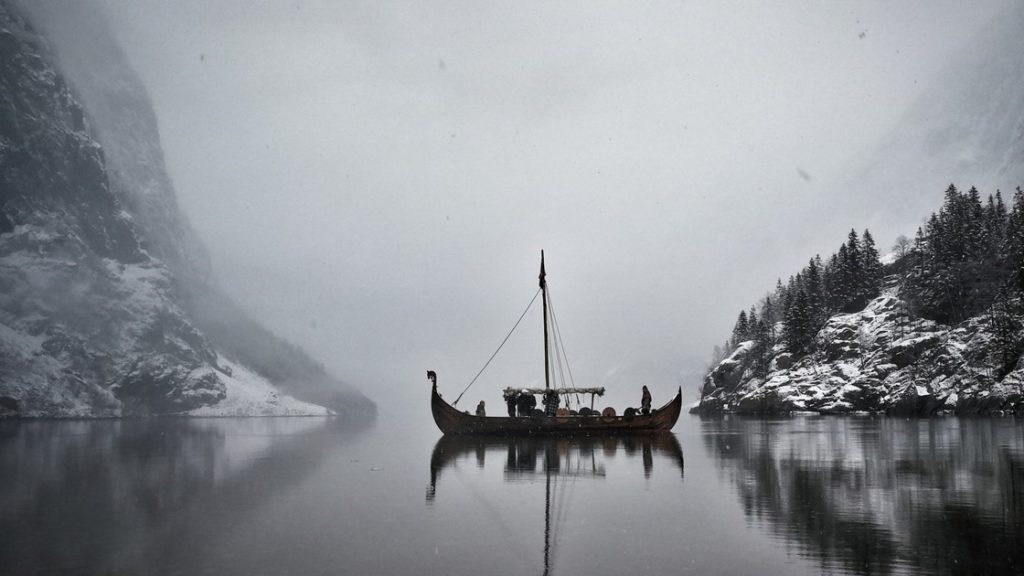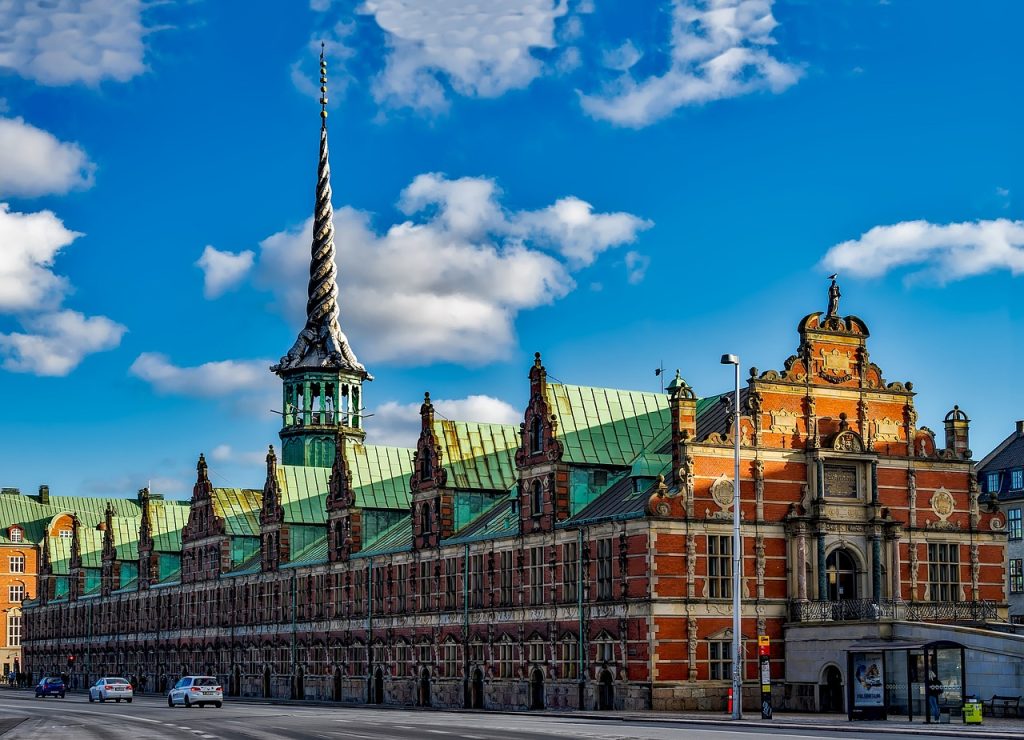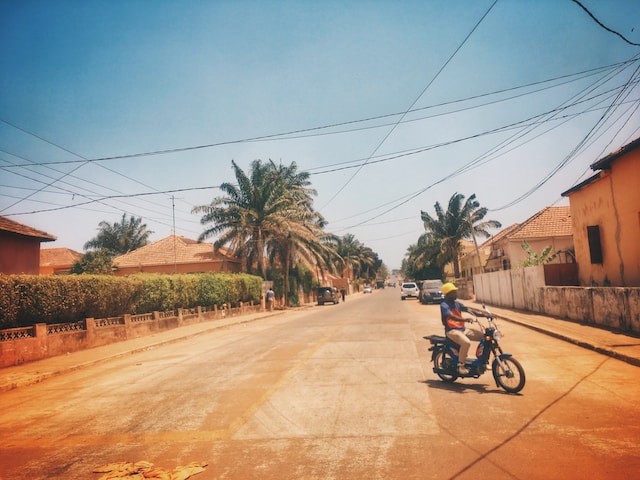History
Liberia, a country located in West Africa, has a rich and complex history that spans more than two centuries. The country’s history is closely tied to the transatlantic slave trade and the efforts of freed slaves and African Americans to establish a new homeland in Africa. In this paper, we will explore the major events and developments that have shaped Liberia’s history.
Liberia was founded in 1822 by the American Colonization Society (ACS), a group of white Americans who sought to repatriate freed slaves and African Americans to Africa. The ACS purchased a stretch of land from local tribes and established a colony, which they named Liberia, meaning “land of the free.” The first group of settlers arrived in 1822, and more than 13,000 freed slaves and African Americans would immigrate to Liberia over the next several decades.
The early years of Liberia were marked by struggles to establish a functioning government and economy. The ACS governed the colony until 1847 when Liberia declared its independence from the United States. Joseph Jenkins Roberts became the first president of Liberia, and the country became the first African nation to establish a democratic government.
In the late 19th century, Liberia came under the influence of European powers, particularly Great Britain and France. The country ceded some of its territory to these powers and incurred significant debt. The country’s economy relied heavily on the export of rubber and palm oil, which were controlled by foreign companies.
In the early 20th century, Liberia experienced a period of rapid economic growth, driven by the export of rubber and other commodities. However, this growth was accompanied by increasing inequality and political corruption. The descendants of the American settlers, known as Americo-Liberians, held most of the political and economic power, while the indigenous population was largely excluded from political and economic opportunities.
In 1980, a military coup led by Samuel Doe overthrew the government, marking the end of the Americo-Liberian-dominated era. Doe’s regime was characterized by authoritarianism, corruption, and ethnic tensions. In 1990, a civil war broke out, pitting various factions against each other, including rebel groups and government forces.
The civil war lasted for 14 years and resulted in the deaths of an estimated 250,000 people. The war also caused significant damage to the country’s infrastructure and economy. In 2003, a peace agreement was signed, and United Nations peacekeepers were deployed to the country. The country has since made progress towards stability and democratic governance.
In conclusion, Liberia’s history is a complex and layered one, shaped by the transatlantic slave trade, the efforts of freed slaves and African Americans to establish a new homeland, European colonization and influence, economic growth and inequality, political corruption, and civil war. The country has faced many challenges, but it has also demonstrated resilience and a commitment to democratic governance.
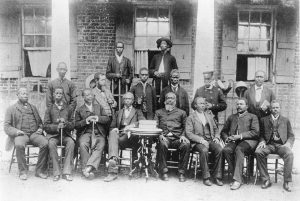
Location
Liberia is located in West Africa, bordered by Sierra Leone to the northwest, Guinea to the north, Ivory Coast to the east, and the Atlantic Ocean to the south and west (CIA World Factbook, 2021). The country’s geographical coordinates are 6.4281° N, 9.4295° W (Google Maps, 2021).
The land area of Liberia is about 111,369 square kilometers, with a total coastline of 579 kilometers (CIA World Factbook, 2021). The country’s terrain is predominantly rolling plateau and low mountains, with about 60% of its land covered by forests (CIA World Factbook, 2021). The highest point in Liberia is Mount Wuteve, which stands at 1,380 meters (4,528 feet) above sea level (World Atlas, 2021).
Liberia’s location is strategic, as it serves as a gateway to the African continent. The country’s capital and largest city, Monrovia, is located on the Atlantic coast and serves as the main seaport for the country (CIA World Factbook, 2021). Liberia is also home to several other ports, including the Buchanan and Greenville ports, which are important for exporting iron ore and other commodities.
In conclusion, Liberia is located in West Africa and is bordered by Sierra Leone, Guinea, Ivory Coast, and the Atlantic Ocean. The country’s capital and largest city, Monrovia, is a strategic location as it serves as the main seaport for the country.
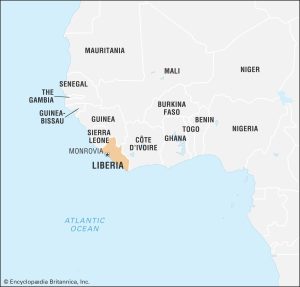
Climate
Liberia is a country located in West Africa, bordered by Sierra Leone, Guinea, and Ivory Coast. The country has a tropical climate that is characterized by high temperatures, humidity, and abundant rainfall. According to the Koppen Climate Classification system, Liberia has a tropical rainforest climate, designated as Af.
The country’s location near the equator ensures that temperatures remain relatively constant throughout the year, with average temperatures ranging from 24°C (75°F) to 31°C (88°F). The humidity in Liberia is high, with levels ranging from 75% to 85%, which can make the hot weather feel even more uncomfortable.
Rainfall in Liberia is abundant, with an average of 3,500mm per year. The rainy season begins in May and lasts until November, with the highest rainfall occurring in July and August. During this period, heavy downpours can cause flooding and landslides in some areas.
The dry season in Liberia occurs between December and April. However, the country still experiences some rainfall during this time, although it is much less than during the rainy season. The dry season is characterized by dusty and windy conditions, and bush fires are not uncommon.
Liberia’s climate has a significant impact on the country’s agriculture, economy, and the livelihoods of its people. The abundant rainfall supports the growth of crops such as rice, cassava, and coffee, which are the country’s main exports. However, the heavy rainfall can also cause damage to crops and infrastructure, such as roads and bridges.
In conclusion, Liberia’s tropical rainforest climate is characterized by high temperatures, humidity, and abundant rainfall. The country experiences a distinct wet and dry season, which has a significant impact on its economy and agriculture. It is essential to monitor the weather and prepare for the impact of climate change on the country.
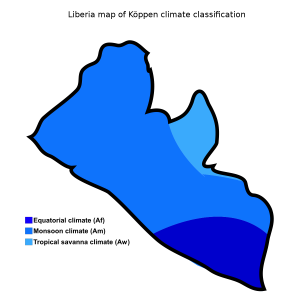
Languages
Liberia is a country located on the west coast of Africa, and it has a rich linguistic diversity with over 30 different languages spoken throughout the country (Liberian Languages, n.d.). In this response, we will provide an overview of the major language families and individual languages spoken in Liberia, along with relevant references.
One of the most widely spoken languages in Liberia is English, which is the official language of the country and the medium of instruction in schools (Liberia: Language, n.d.). However, English is not the first language of most Liberians, and only a small percentage of the population speaks it as their native language (Liberia: People and Society, 2022).
Another major language family in Liberia is the Niger-Congo family, which is one of the largest language families in Africa. Within this family, there are several sub-families spoken in Liberia, including the Mande, Kru, and Kwa languages. The Mande languages, such as Vai, Maninka, and Mandinka, are spoken in the northern and western regions of the country, while the Kru languages, such as Bassa, Grebo, and Kru, are spoken in the central and eastern regions. The Kwa languages, including Kpelle, Lorma, and Gola, are spoken in the central and northern regions of Liberia (Gordon, 2005).
In addition to these major language families, there are also several minority languages spoken in Liberia, such as the Afro-Asiatic language family, which includes the Semitic language of Arabic, and the Nilo-Saharan language family, which includes the Songhay language (Gordon, 2005).
Language is an important part of Liberian culture, and the diversity of languages in the country reflects its rich history and heritage. While English is the official language, it is important for visitors and researchers to understand the various indigenous languages spoken in the country to fully appreciate its cultural diversity.
